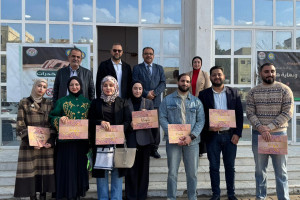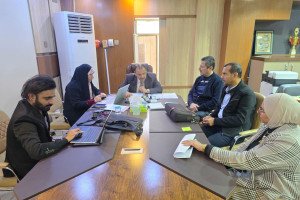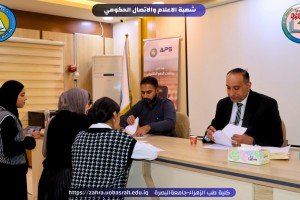
As part of the Ninth Pediatric Medicine Conference held in Basra on April 10–11, 2025, Professor Dr. Haitham Hussein Ali Al-Mu’min, Deputy Dean of Al-Zahraa College of Medicine for Administrative and Financial Affairs and Pediatric Surgery Consultant at Basra Specialized Children's Hospital, delivered an outstanding scientific lecture titled "Nutrition in Early Life Stages: A Protective Shield and Lifelong Immunity." The lecture addressed the significance of proper nutrition in the early stages of a child's life and its essential role in strengthening and developing their immune system.
Focus on the First 1,000 Days
Dr. Al-Mu’min emphasized the critical importance of the first 1,000 days of a child's life, which span from pregnancy to the age of two. He described this period as the golden phase for developing the body's defensive capabilities. He stressed that breastfeeding is not only a source of nutrition but also acts as a "natural vaccine" that enhances a child's immunity by transferring antibodies and essential nutrients that protect against chronic diseases such as diabetes and allergies, as well as reducing the risk of infections.
Nutritional Challenges in Modern Times
The lecture also discussed changes in Iraqi families’ dietary habits. Dr. Al-Mu’min pointed out the dangers of increasing reliance on processed foods, which contain high levels of sugar and saturated fats. He referred to these foods as the "hidden enemy," explaining that they weaken the immune system and increase the likelihood of early obesity. He also underscored the importance of introducing appropriate complementary foods after the sixth month to prevent malnutrition and dietary insufficiency, which are directly linked to immune deficiencies among children in Iraq.
Practical Tips for Boosting Immunity
In the practical section of the lecture, Dr. Al-Mu’min provided a set of recommendations aimed at improving children's health, including:
- Adding probiotic-rich foods such as fermented dairy products to children's diets, which help support beneficial gut bacteria—an essential component of approximately 70% of immune system functions.
- Ensuring the intake of essential vitamins like Vitamin A, C, and D, and minerals such as zinc and iron during early growth stages.
- Encouraging families to prioritize home-cooked balanced meals instead of relying on ready-made fast food. He also stressed the importance of educating parents through medical programs about the long-term benefits of healthy nutrition.
Engaged Audience and Interactive Discussions
The lecture was met with great engagement from the attendees, who asked questions about environmental conditions in Basra, particularly pollution, and their impact on children's health. Dr. Al-Mu’min responded by highlighting how balanced nutrition can help mitigate the negative effects of environmental factors. Concluding his speech, he stated: "Investing in children's nutrition today is a long-term investment in the health of the entire society."
Conference Message
This lecture was part of a series of sessions at the conference that underscored the importance of child healthcare as a collective responsibility shared by doctors, families, and policymakers. Dr. Al-Mu’min emphasized that joint cooperation can help build a strong generation with a robust immune system, capable of facing future health challenges. His presentation reinforced awareness about the vital role of nutrition in shaping a healthier future for both children and society.



.jpeg)
.webp)
